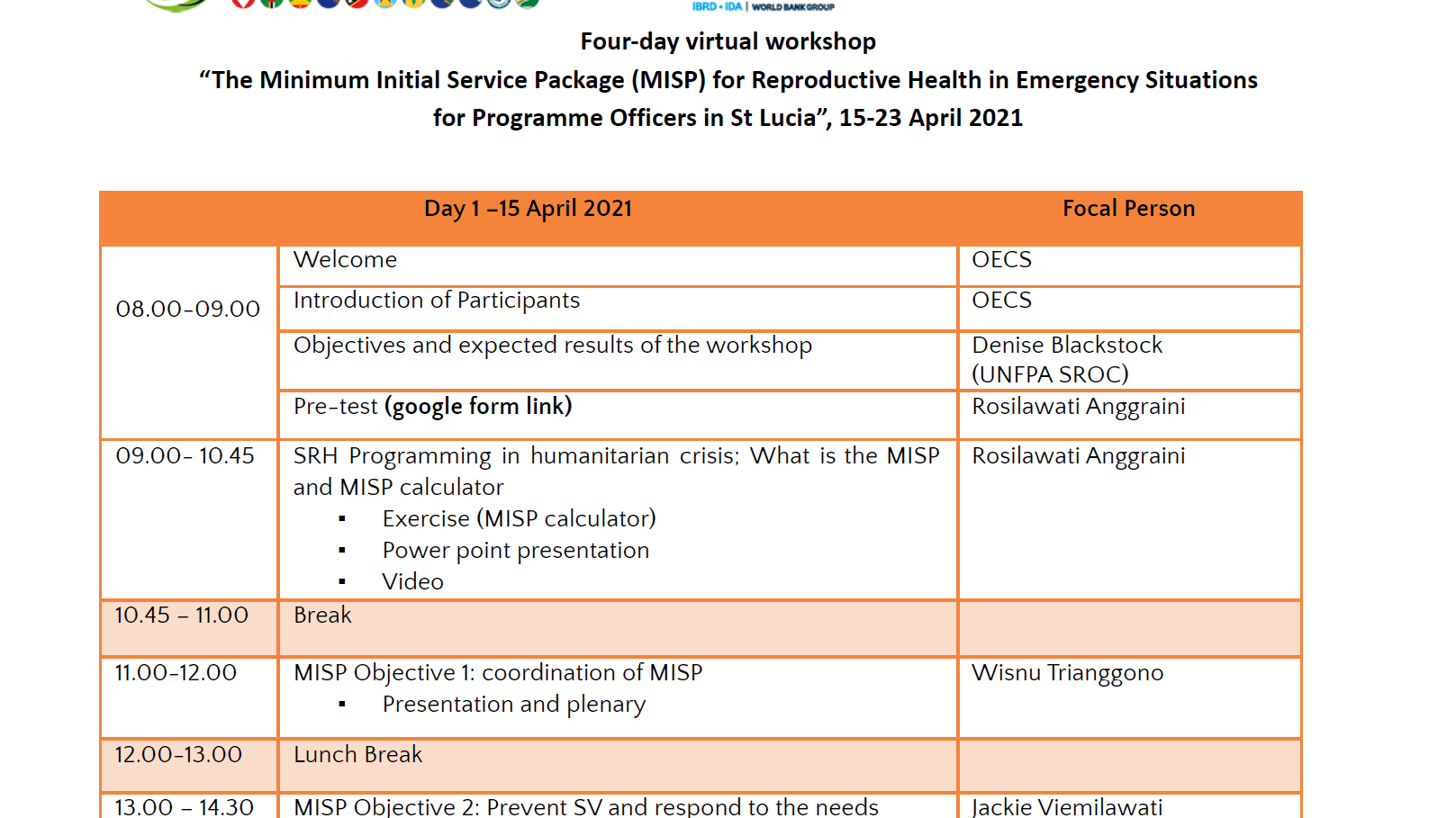Health care providers, gender institutions, national disaster agencies and civil society organizations in four Caribbean countries have benefited from a workshop on how to respond to the reproductive health needs of affected populations during emergencies. During the period of May 13th to May 21st, UNFPA SROC, in collaboration with OECS with funding from the World Bank, facilitated a Minimum Initial Service Package (MISP) capacity building training in SVG for programme managers, followed by a MISP readiness assessment, which resulted in a prioritized action plan to address the main gaps. The implementation of this plan aims to support country efforts in ensuring that SRH and GBV are mainstreamed in emergency preparedness and response actions. Other countries that subsequently benefited from this initiative included Dominica, Grenada and Saint Lucia.
The MISP is a coordinated set of activities designed to prevent and manage the consequences of sexual violence; prevent the transmission of and reduce morbidity and mortality due to human immunodeficiency virus (HIV) and other Sexual Transmitted Diseases (STIs); prevent new-born and maternal morbidity and mortality; prevent unintended pregnancies and plan for comprehensive RH services. Additional priority activities included Adolescent Sexual and Reproductive Health, access to contraception for existing users and distribution of dignity kits.
In St. Vincent and the Grenadines, UNFPA also developed a quick guidance on the safe distribution of the Dignity Kits, for the Gender Affairs Division’s team and the Protection Working Group partners. UNFPA remotely provided regular GBViE technical assistance support to the Gender Affairs Division and to the FP/Maternal health coordinator of the Ministry of Health. This guidance will also be shared with other countries in the region.
The objective of the training sessions was to improve the preparedness of stakeholders to respond to Sexual and Reproductive Health and Gender-Based Violence needs in humanitarian settings, also considering the COVID-19 context. The Minimum Initial Service Package should be implemented in the initial phase of an emergency.



